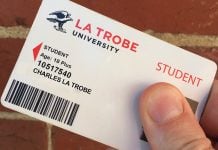If you’re planning how you’re going to tackle your next assessment, you may be wondering if you’re getting your revision right. We asked lecturers, tutors and students how to revise efficiently and effectively. See what they said.
1. Understand the assessment format
“Make sure you have a clear understanding of the format of the exam,” says Swati Nagpal, Lecturer in Management Sport and Tourism. “Every subject is different. For example, multiple choice, open book, case study etc. This will be the most important guide for how you approach your revision.”
2. Set tasks and manage your time
“Plan your study backwards from the assessment date. Cramming everything into the night before, or listening to your lectures during your sleep and hoping that learning through osmosis is not a great strategy. Instead, set up a calendar of achievable tasks to complete and reward yourself with a treat when you’ve completed these – perhaps it could be watching another episode of your favourite tv series, or some chocolate.” – Mathew Marques, Lecturer in Psychology and Counselling
Work in terms of tasks not time. Set a task for each study period. A sense of achievement comes from successfully completing small tasks and breaking the work up into smaller sections, making the whole process of revision more achievable. Follow this link to view the Pomodoro Method, which breaks down work into 25-minute intervals with short breaks.
Review your approach. If your study plan is not working effectively, review your strategies and consider making changes. Some minor adjustments may be all you need to stay on track.
Make sure you include some recreation time. Allocate time for recreational activity you will be less tempted to throw it all in and waste time avoiding study because of unrealistic demands you have made upon yourself.
“Make a schedule. Divide each day of the revision period into 2 or 3 blocks, decide how many ‘blocks’ of study you need for each subject, and start scheduling in the study blocks.” – Amanda Shaker, Lecturer in Mathematics and Statistics
3. Narrow your focus
Be clear about what you’re aiming to achieve in each revision session. Your learning objectives will help with providing direction, says Mathew Marques, Lecturer in Psychology and Counselling. Mathew suggests studying to the learning objectives is the best way to integrate the important information you’ll need for the assessment into your revision.
4. Develop a ‘concept registry’
Swati Nagpal, Lecturer in Management Sport and Tourism, encourages students to develop a ‘concept registry’ for the subject. “A concept registry will allow you to focus your revision,” Swati says. “Thinking of the subject content as a set of concepts will allow you to apply them more effectively when answering exam questions. Especially in written short-answer or longer discussion questions.”
5. Recognise, understand, recall
SWOT VAC is a time for refreshing your memory about content you have previously learned and understood. The key principle during this period is to move from recognising to understanding to recalling.
Many students, after having read over material several times, assume that because it looks very familiar, they have learned it. Simply being able to recognise material does not automatically mean that you understand it or will be able to recall it later in the exam.
The following suggestions may be useful for practising recall:
- Revise definitions from your glossary. Cover the definition side and practice recalling definitions; then cover the term side and practice recalling the terms.
- Use flash cards with the question on the front and the answer on the back. Keep aside any that you got wrong and then do these again. Keep doing this until you get them all correct.
- If you need to memorise diagrams, make large ones and stick them up on your walls.
- Use rhymes and mnemonics to assist recall. For example, to remember electron loss and gain in oxidation and reduction, the following may be easy to remember: OIL RIG – Oxidation Is Loss; Reduction Is Gain (of electrons).
- Revise with a friend or a study group to share knowledge and exam strategies and to practice recall.
6. Do practise questions
Past exam questions or revision questions provided by your lecturer will come in handy here. During SWOT VAC, it is a good idea to practise answering questions under exam conditions in the time allotted, without looking at your notes or books.
Make sure you focus on anything you got wrong. It is critical that you study before doing the practise questions. That way you can check how effective your study has been. If you do the questions prior to studying, you will focus on studying those topics, rather than learning all of the material that could be covered in the exam.
7. Mock up a test environment
Assessment conditions can become less stressful if you’ve already sat mock exams at home in your own time under the same conditions.
“If you are sitting an exam, you could generate questions as part of a small study group and develop your own version,” says Mathew Marques, Lecturer in Psychology and Counselling. “Not only will writing them help you understand the material, but not being able to answer them will help you identify gaps in your knowledge. Try and use the learning objectives to develop questions.”
8. Rest, relax and recharge
“Remember the 3 Rs of self-care during this time: Rest, Relax and Recharge!” says Swati Nagpal, Lecturer in Management Sport and Tourism.
When students are revising hard for an upcoming assessment, healthy sleep patterns often fall by the way-side. Sacrificing sleep for late night study is a trap, says Peer Learning Adviser Emily. “I think one thing that’s really important that a lot of us students tend to forget is actually sleep,” she says. “If you’re really fatigued, it will catch up with you. It’s so important to get all the sleep that you can.”
Scheduling in breaks is an essential part of revision too, says Amanda Shaker, Lecturer in Mathematics and Statistics. “Breaks will give your brain a rest and allow some buffer time in case you need to catch up if you fall behind.”
Use your break time as a reward. Whip up something tasty in the kitchen, go for a walk, meditate, watch an episode of your favourite show, or do whatever it is that allows you to reset mentally.
If you want to talk through strategies for managing your mental health in the lead up to assessments, or simply talk about anything that’s on your mind, get in touch with La Trobe’s counselling service – it’s free for all students.













